Phoebe Legere – A Lower East Side Legend Who Continues to Make an Impact
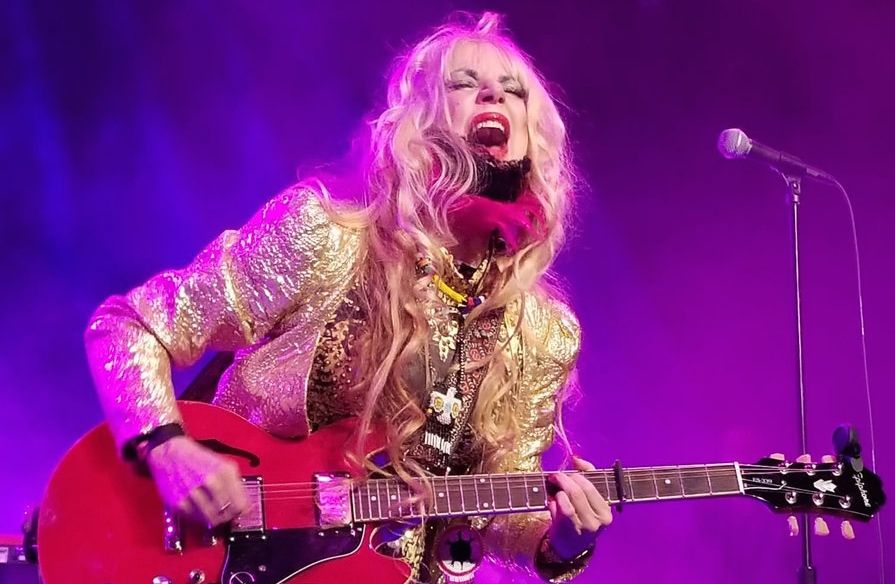
If Dos Equis ever wants to reboot their “Most Interesting Man in the World” ad campaign, they might want to consider a gender swap, and giving Phoebe Legere a call.
Discovered by Michael Jackson in her teen years, Legere and her band, MONAD, became active members of NYC’s New Wave scene before she could legally vote.
Frequenting iconic Lower East Side venues like CBGB, she would find herself immersed in an arts scene that would have her rubbing elbows with everyone from Allen Ginsberg, to Hunter S. Thompson, to Terry Southern.
During that time she also landed a leading role in The Toxic Avenger Part II, and III, playing Toxie’s blind girlfriend Claire, and providing music for the soundtracks to the films. Three of those songs recently gained a second life with the limited vinyl release of Music From The Toxic Avenger Pt II & III.
A wildly fascinating person, I caught up with Legere over Zoom, and she discussed the ‘80s Lower East Side scene, and some of the most interesting people she dined with during that time. She also opened up about learning the machinations of the music industry the hard way – and why she says things are actually a little better for young women now – as well as the experience of working with Lloyd Kaufman, and randomly falling into what has become her greatest love in life – bringing art to the lives of kids in NYC.
You have so many things going on – music, film, art, charity. Your energy level is insane. What continues to motivate you, and keeps you going at this pace?
It’s such a wonderful, and such a generous question, Adam.
I love what I do.
It’s that simple?
It’s that simple. I love music. I’m crazy about music. Always have been.
The music industry has caused me quite a bit of suffering, but music itself never lets me down, and it’s an art form, it’s a field of study that really takes even more than a lifetime.
You can tell when you see some kids who were born extremely musical that it must be some kind of reincarnation of somebody there. You know, they got a head start on the practicing. I just love it.
My parents were painters, and I have a tremendous passion for drawing, and painting.
I guess, it’s not really energy with me. I’m not particularly energetic. It’s beauty that just draws me forward. I love all of the arts.
I don’t know if you want to talk about painting, or charity, or music. I’m ready to talk about anything. When I start talking about the importance of bringing arts to children I get really passionate.
I do have a question about that later in the interview. Before that, however, let’s talk about music. I’m a huge history buff, specifically of the Lower East Side, and your LES history is amazing, because you were there at the beginning of the New Wave era.
That’s true.
We missed the punk wave, but I was a little kid when it happened, and I was, of course, in love with it, because it’s really children's music. The Sex Pistols, and Ramones are really kids’ music, and I went crazy for it. I wanted to be part of it, and CBGB was just exploding, and, of course, Blondie was so beautiful, and Richard Hell, everybody was so fascinating. I wanted to be them, and I wanted to be friends with them, and I wanted to play music. I wanted to have that life.
I ran away from home when I was 15, so we didn't really get the band organized and playing out until I was 16.
It seems like punk was actually squashed.
I don’t want to get into this about the music industry, because I know too much about it, but what they do is they kill off trends. Just like they killed off vinyl so they could sell everybody CDs, and then they killed off CDs so they could sell them streaming. This is just a business model, so they kill off genres, or what you might call radio formats.
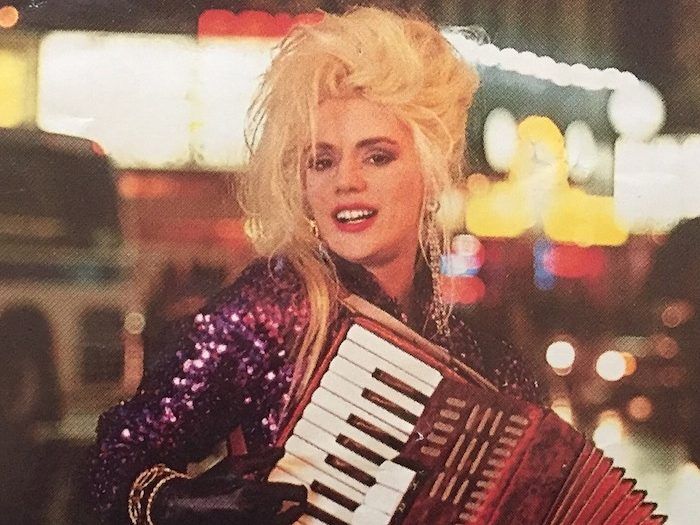
They killed off disco to bring up punk because the disco artists started demanding the money that they were earning.
Thank you, Adam, for being so intelligent. I appreciate it.
And they killed off heavy metal because heavy metal began to require a million dollar guitar player, and they were not going to pay for that. They weren’t going to pay for the costumes. That’s when they invented alternative.
They went to Seattle and they found Mudhoney and, of course, the famous Kurt Cobain and Nirvana, and they basically just pumped the money behind (that).
It happened overnight. I know somebody who was working at RCA at the time. Somebody ran down the stairs, and said, “Stop signing metal. We’re going alternative.”
I interviewed Gunnar Nelson a while back, and he was telling me how he and his brother came back from a tour, they’d made the label $23 million, and the label – which had a near total turnover while they were on the road – was basically like, yeah, keep recording, but we’re not going to put anything out.
And suddenly hair metal disappeared.
I’d love to write a book about the manipulations of radio formats, because by doing this they turn the generations against each other.
A generation is 15 years, but what they did was kind of create smaller generations that could pee on each other because you hated the older people’s music.
I was never like that. I don’t believe in this apartheid of musical genres.
Okay, we’re getting off topic.
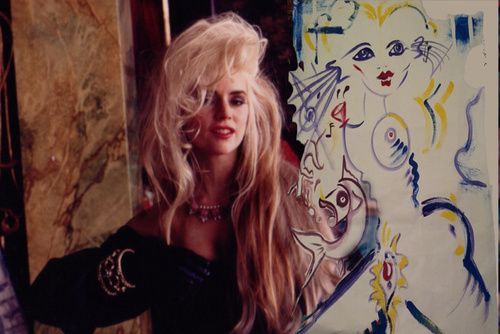
When you were coming up in the LES, and making your way as an artist, who was the most interesting person you had a drink, or a meal with?
Oh, well, that’s Terry Southern.
That was a quick answer.
That’s the most intelligent person I ever met.
Then his son (Nile) became my fiancé.
(Terry) wrote Easy Rider, and Dr. Strangelove. A blacklisted writer who is no longer even remembered. What a mind. There were wonderful minds around the Lower East Side at that time, and the people around me were so fascinating.
Jack Smith, who was a performance artist. He did a movie called Flaming Creatures. He was the one from whom Andy Warhol stole the idea of the kind of movies that Warhol did. Tremendous influence on Warhol. He was also blacklisted. I just learned about this when I was in Venice for an artist residency at the Emily Harvey Foundation, and went to a show of an artist named Harry Smith. Harry Smith, and Jack Smith picketed Lincoln Center, and the Metropolitan Museum in 1969 carrying signs that said “White Supremacy.”
Wow!
Of course, what thanks did they get? They were completely blacklisted, and have been forgotten.
So yes, Jack Smith, Peter Beard.
I didn’t meet Hunter Thompson until the mid ‘90s. One of the great brains.
And of course, Allen Ginsberg.
It’s New York school, so Allen Ginsberg, Terry Southern, and Larry Rivers.
That’s a heck of a dinner table.
And I was at a dinner table with them, many times.
I was so lucky.
Even though at that time, women – and particularly women artists – were treated like dirt.
There was no such thing as sexual harassment. It was just open season on little girls, and yet, somehow, because of my balls, and insanity I was able to penetrate this very Olympian dinner table of high intelligence, and super creativity. Supermen of the arts.
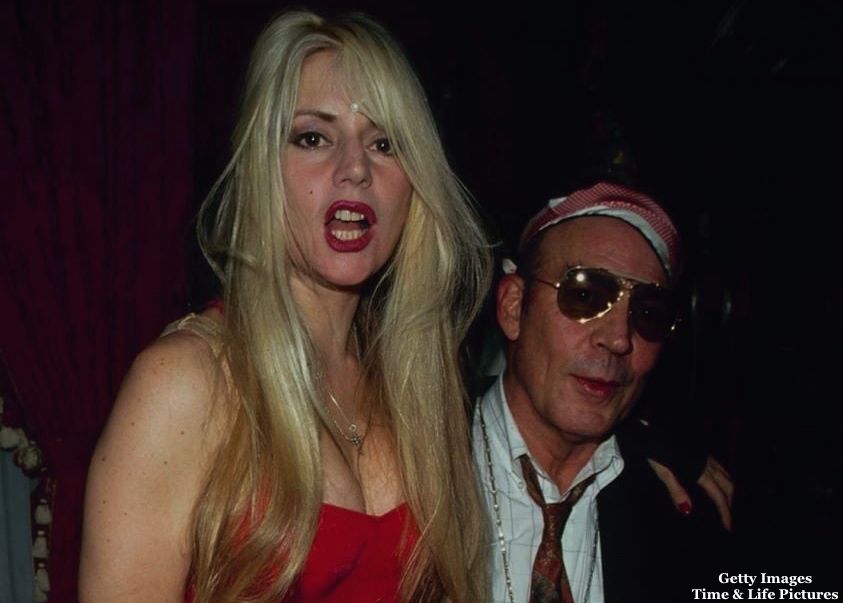
We now see a lot of young women get thrust into the music industry, and then get spit back out.
Yeah, well it has always been (that way).
I entered in the mid ‘80s / late ‘80s. So I’m 16, but I acted like a guy. I was such a tomboy. I didn’t get this glamour thing. I didn’t figure out how to be sexy until I was told by Epic Records that this is the way the record business was going. They could see that people were no longer interested in music. Once MTV started, music became stripping with music.
I was even told by Madonna’s management, when (Madonna) left Camille Barboni … Camille said, “Phoebe, get rid of your band. We don’t use bands anymore. It’s just going to be a girl dancing, wearing a little costume, dancing to a track, and we just hire the dancers in the different towns.”
I stood there in the office – I mean, they were offering me stardom – how stupid 17 year olds are, and she said, “We will make you a star, all you have to do is get rid of your band, and just perform with a track.”
And what did I say? Did I say yes?
No.
I said, “My band is my family,” and I walked out of the office.
As I was leaving, Camille said, “You’ll find out. They’re not your family. You’ll find out,” and it’s true because when I didn’t get a major label deal right away, like within the next few months, they all left me.
So that was a good lesson about the arts.
With everything you've gone through, and seeing what young women still go through, what Britney Spears went through …
Madness.
There’s also what Miley Cyrus went through, and what I assume Olivia Rodrigo will go through …
Very, very talented. Wonderful. Love her songs.
I don’t know if they’ll go through it. I think, you see, because now we have these laws that are protecting us, and people are so afraid of million dollar lawsuits.
It’s great that they’re afraid of million dollar lawsuits, but that shouldn’t be the onus for acting like a good person.
Adam, please. {laughs} Too much money to pay.
And sex is the driver of the universe. I mean, those record companies were really just brothels. They were really just pleasure palaces for executives to do drugs, and have access to free, beautiful, ambitious, wonderful little kids.
Moving to a different type of toxic, you had a starring role in The Toxic Avenger Part II, and III.
Yes, and I’m on the soundtrack.
When you started out with Troma, at any point did you wonder – what did I get myself into?
I was learning so much. Lloyd Kaufman is a genius.
I learned how to make independent films from Troma. I was making films before, but I became a much more effective director from watching Lloyd.
The Troma people that I met have remained very close friends, perhaps because of the difficult conditions under which we filmed.
Of course, in those days, there was no CGI. I think it was ’89 and ’90 when those were filmed, and I did my own stunts, my own explosions. The fireworks between my legs – all that’s real. I was doing that.
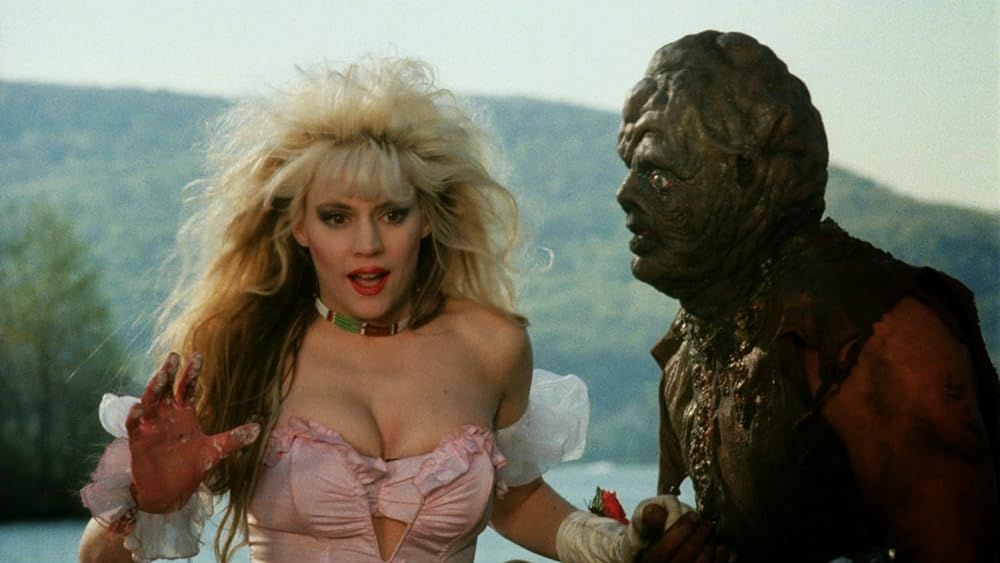
Three of your songs from those movies have been given a second life thanks to the limited vinyl release of Music From The Toxic Avenger Pt II & III.
There was (also) supposed to be “Amazing Grace” in there, which is in the movie … I have the master cassette somewhere in my archive, but I couldn’t find it in time, but yes, I have three heavy metal songs in that movie that have never been released before.
Something I find interesting is you used AI for one of the videos.
For “Love is Blind” I didn’t have a performance tape, and I didn’t have time to get a whole shoot together, and who could ever recreate the atmosphere of the heavy metal days? It was a spectacle that combined the pleasures of of war, death, and balls-out self-enjoyment. I’m not saying (it was) narcissism, but (it was) a kind of reveling in individual eroticism.
I knew I couldn’t make a video that could match it, so I took some photographs that I had, and I used AI to make the mouths move.
There’s been a lot of talk about AI, and how it’s being used. George Carlin’s daughter has been very outspoken about it because a company created what they called an AI George Carlin special.
And so she is very justifiably upset.
What do you think are the responsibilities we have regarding AI?
Well, look, if it’s this good right now, can you imagine in ten years?
Does any of that concern you?
All of reality is a hologram anyway.
I think maybe the Lord invented AI just to fuck us up, and it’s going to.
Finally, something that’s not fucking up is your Foundation for New American Art. Tell me about the work you do with children in New York City.
They eliminated all art and music in 2008 in the public schools.
I was living in the projects at that time, and I used to just open up my studio and invite the neighborhood families in to see art, and have poetry, and performance art, and all my crazy friends, and exhibitions. I just did it for fun. I called it the New York Underground Museum.
The parents would bring children, and the parents began to tell me that this was the only exposure to the arts that the kids were getting.
I don’t have children. I wasn’t aware that they had completely pulled all the art and music as a result of the financial crisis of 2008, and also as some kind of a feeling that we should all just be coding in order to keep up, or whatever the stupid thinking was.
The Lord spoke to me, and said, “Phoebe, it is up to you to give the art and music to the kids who are not getting it in New York.”
Half a million children have no art and music. Zero. Zip. I mean, in the East Village, where ten major art movements began. So I started to do after school programs.
I’ve learned quite a bit about the way the brain develops, about cognitive development, and the importance of color, rhythm, sound, community singing, community dancing, community listening, telling stories.
I realized that we could leverage the power of art and music to try to resolve deep inner conflicts like PTSD, and kids who come from from cultures of extreme violence, so our program is called Paintbrushes Not Guns.
I’m just starting a program upstate partnering with a program called SNUG, which is guns spelled backwards. They work on conflict resolution at a very high level with kids that have guns.
It seems completely insane, doesn’t it, that I would be confronting an AK-47, or other armaments of war, with a paintbrush – paintbrush versus gun – but it’s working.
As Einstein once said – you can’t solve a problem at the level of a problem.
So we are having an impact.
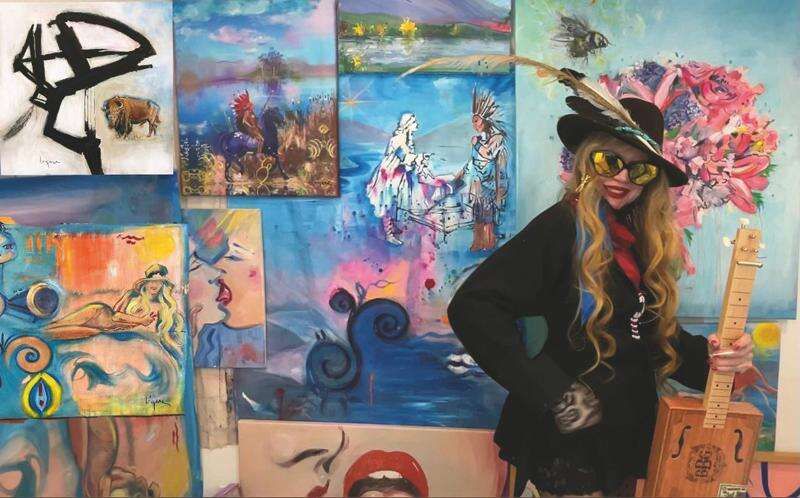
For more Phoebe Legere, check out phoebelegere.com.

Comments